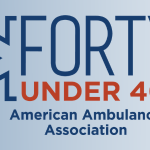Medicare Ambulance Relief Bill introduced in Senate
Yesterday, Senators Catherine Cortez Masto (D-NV) and Susan Collins (R-ME) introduced the Protecting Access to Ground Ambulance Medical Services Act of 2021 (S. 2037). Senators Cortez Masto and Collins were joined by Senators Debbie Stabenow (D-MI), Bill Cassidy (R-LA), Patrick Leahy (D-VT) and Bernie Sanders (D-VT) as primary cosponsors and leads on the legislation.
S. 2037 is identical to H.R. 2454 by Representatives Terri Sewell (D-AL), Devin Nunes (R-CA), Peter Welch (D-VT) and Markwayne Mullin (R-OK) and would extend the temporary Medicare ground ambulance increases of 2% urban, 3% rural and the super rural bonus payment for five years. The increases are currently scheduled to expire on December 31, 2022. The five-year extension would allow for the increases to remain in place during the two-year delay on ambulance data collection due to the COVID-19 public health emergency, an analysis of the data by MedPAC and subsequent action by the Congress to reform the Medicare ambulance fee schedule.
The legislation would also help ensure that rural zip codes in large urban counties remain rural following geographical changes under the fee schedule as a result of the 2020 census data. The current definition using rural urban commuting areas (RUCA) in Goldsmith Modification areas would be modified for zip codes with 1,000 people or less per square mile would also be rural. Ground ambulance service providers and suppliers could also petition the Centers for Medicare and Medicaid Services (CMS) to make the argument that a specific zip code should be rural. It is vital that this provision be implemented before CMS makes changes from the 2020 census data which will likely occur in 2023.
The AAA has been leading the effort on the legislation with the support of the International Association of Fire Chiefs, International Association of Fire Fighters, National Association of EMTs, National Rural Health Association and the National Volunteer Fire Council.
The AAA will be launching a Call to Action shortly requesting AAA members to ask their Senators to cosponsor S. 2037, and reach out to their Representatives to cosponsor H.R. 2454 if they have not already done so.
We greatly appreciate the leadership of Senators Cortez Masto, Collins, Stabenow, Cassidy, Leahy, and Sanders on this vitally important legislation.
Thank you @SenCortezMasto, @SenatorCollins, @SenBillCassidy, @SenStabenow, @SenatorLeahy, and @SenSanders for collaborating to support America's #EMS providers in the pandemic and beyond! #SupportEMS #AlwaysOpen #MobileHealthcare #NotJustaRide pic.twitter.com/q7Divtby8z
— AmericanAmbulanceAsc (@amerambassoc) June 10, 2021




